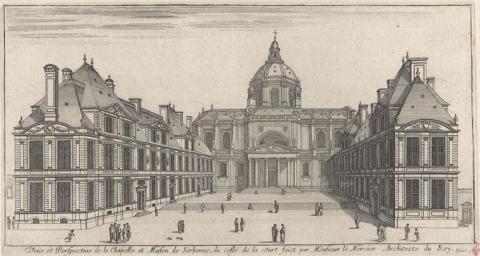
The University of Paris, often referred to as the Sorbonne, holds a venerable place in the annals of higher education. Its rich history spans centuries and has contributed significantly to the development of intellectual thought, culture, and education. In this article, we embark on a journey through time to explore the captivating history of the University of Paris, tracing its origins, evolution, and enduring legacy.
1. Birth of a Scholarly Haven
Founded in the early 12th century, the University of Paris emerged as a response to the growing demand for education and scholarship in medieval Europe. Its inception marked a pivotal moment in the history of higher learning.
2. Theology and Scholasticism
During its early years, the University of Paris gained prominence as a hub of theological studies and scholasticism. The works of notable thinkers like Thomas Aquinas and Peter Abelard contributed to its reputation as a center of intellectual debate.
3. The University and the Church
The University of Paris had close ties to the Church, with the Pope granting it various privileges and rights. This connection played a significant role in shaping the university’s curriculum and governance.
4. Faculties and Academic Structure
The University of Paris was organized into faculties, each specializing in different areas of study. These faculties included theology, law, medicine, and arts, forming the foundation of the modern university structure.
5. Influence on Renaissance Humanism
As the Renaissance swept across Europe, the University of Paris played a crucial role in disseminating humanist ideas and classical learning. Its scholars contributed to the revival of classical texts and the advancement of humanistic thought.
6. The Sorbonne’s Role in Enlightenment
The Sorbonne, a college within the University of Paris, continued to exert influence during the Enlightenment. It became a prominent center for Enlightenment thinkers and philosophers who shaped the era’s intellectual discourse.
7. Periods of Turbulence
The history of the University of Paris also witnessed periods of turmoil, including conflicts with religious authorities and student protests. These events reflect the university’s role as a catalyst for social and intellectual change.
8. Modern Evolution and Restructuring
In the 20th century, the University of Paris underwent restructuring, leading to the formation of multiple autonomous institutions, each with its own identity and focus. These institutions continue to carry forward the legacy of the original university.
9. A Legacy of Intellectual Prowess
The University of Paris has left an indelible mark on academia, producing a multitude of renowned scholars, philosophers, and thinkers throughout history. Its contributions to literature, science, philosophy, and the arts have shaped the course of human knowledge.
10. Continuation of Excellence
Today, the University of Paris maintains its position as a respected center of learning and research. Its various institutions carry on the tradition of academic excellence, contributing to the advancement of knowledge and the nurturing of the next generation of scholars.
Conclusion
The history of the University of Paris is a captivating tapestry woven with threads of intellectual curiosity, innovation, and cultural influence. From its humble beginnings to its enduring legacy, this institution has played a pivotal role in shaping the landscape of higher education and intellectual discourse. As we reflect on its storied past, we gain a deeper appreciation for the University of Paris’s profound impact on the world of scholarship and its continued relevance in the realm of academia.